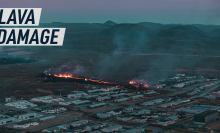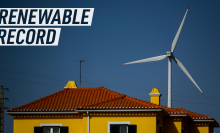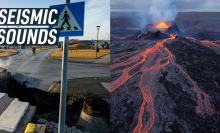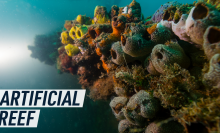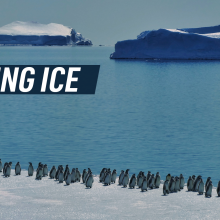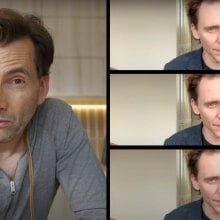We've known for a while that Greenland's ice sheet is melting worryingly fast. But a new study from Northwestern University and the University of Copenhagen has found that Greenland’s thousands of peripheral glaciers have entered a new and widespread state of rapid retreat.
In their research, published in Nature on Nov. 9, the team used satellite images and rarely seen historic aerial photographs of Greenland's coastline to map the thousands of glaciers that aren't part of the island's vast central ice sheet. To complete the study, the researchers removed terrain distortion and used geo-referencing techniques to identify the exact locations shown in the photos. The unique data allowed the researchers to document and compare over a thousand glaciers, and the way they've changed over the last 130 years.
According to Yarrow Axford, Northwestern’s senior author of the study, some of the historic photographs were taken from open-cockpit airplanes during Greenland's first mapping missions.
"Those old photos extend the dataset back prior to the satellite era, when widespread observations of the cryosphere are rare," she said in a press statement. "It’s quite extraordinary that we can now provide long-term records for hundreds of glaciers, finally giving us an opportunity to document Greenland-wide glacier response to climate change over more than a century."
The multiyear study has concluded that the rate of the glaciers' retreat has increased twofold since the year 2000, and that rising air and ocean temperatures due to human-induced climate change is the reason for this negative record.
"Our activities over the next couple decades will greatly affect these glaciers," said Laura Larocca, the study's first author. "Every bit of temperature increase really matters."
Topics Nature Innovations

